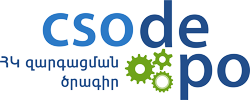Վերջնաժամկետը երկարացվել է. Համաշխարհային խաղաղության տեղական արմատները (անգլերեն). Միջազգային կոնֆերանս Երևանում
Call for Proposals
June 23-24, 2017
Eurasia International University, Yerevan (Armenia)
Sponsored by:
Eurasia Partnership Foundation (Armenia), Stonehill College (United States) and Eurasia International University (Armenia)
The year 2016 signaled an era of centrifugal world politics. The Brexit unsettled the regional fabric of European Union. Across the Atlantic, the new American administration withdrew from Trans Pacific Partnership Agreement while challenging the fundamentals of NAFTA and the economic benefits accrued from free trade. The electorates in many Western democracies registered a displeasure against economic globalization, defied global refugee protection policies and called for stringent positions on immigration. Institutional and political support for cosmopolitan values and human rights has been weakening in many parts of the world. Elsewhere, the level of social protest and transnational activism against governments, democracies and dictatorships alike, has been on the rise. Despite persistent turmoil in the Middle East, inter-state wars have nearly disappeared from the world system, and the intra-state violence has experiences a steady decline in the post-Cold war period. Transnationally organized collective responses to problems defying state-centric solutions, from crime, corruption to global warming, remain weak.
With the seeming global erosion of liberal values and institutions, more apparent domestic democratic declines world-wide over the last decade has been a parallel trend. Since 2000, democratic break-down is registered in 27 countries. Some democratic erosion is registered in the US and 22 European countries. From France to Philippines, right wing populism is on the rise. Still, parallel to these trends, others point to successful democratic transitions in Gambia, Georgia, Nigeria, Sri Lank and Tunisia, among several others.
Centrifugal forces elevate short-term strategic security concerns, but undermine global institutions of governance and weaken human security as a result. Bullets and ballots shape national politics and transform security systems, regional to global. Understanding whether these developments, nationally and globally, are a bump in a road or a massive fracture with what seemed like a democratic destiny a decade ago, is the overarching theme that will be driving the conversations at the conference.
Is liberal world order under threat? How liberal was that order? How much order was there? What are its prospects moving forward? Is the “West” in decline, and is the “Rest” on the rise? How to build global cooperation in an era of centrifugal politics?
Topics to be covered include but are not limited to the following:
- Global security studies
- Armed conflicts, active or frozen
- Peace processes and peacebuilding practices
- Restorative justice and reconciliation
- Extremism, regional and global
- Corruption and abuse of power (local, national and global)
- The nexus of networked crime and armed conflict
- Human rights
- Global criminology & crimes of globalization
- Genocide, war crimes, crimes against humanity and international law
- Human security and insecurity
- Globalization, market economy and global security
- Globalization, war, crime, and conflict
- Politics of gender, in war and peace
- Violence against women
- Regional organizations and regional security systems
- International institutions, national actors and environmental security
- Environmental criminology and justice
- Development and crime
- Trade liberalization and economic development
- Multilateral and bilateral trade agreements
- Economic effects of immigration
Types of Submissions and Guidelines
This year, the following types of submissions are invited:
- Research articles, which should include clearly defined research goals, literature review and empirical section. Papers should not exceed 8,000 words.
- Literature review articles on an ongoing project, which should delineate key themes and trends in the scholarly literature in a given topic. Papers should not exceed 5,000 words.
- Policy papers and editorials on any of the topics listed above, which should have clearly defined position and strong empirical support. Papers should not exceed 3,000 words.
The conference will include professional development seminars and practitioner panels. Presentation in these two types of panels is by invitation only but the panels are open to all conference participants.
Application and Deadlines
To be considered for conference presentation, please submit (1) a short bio or CV, listing your current institutional affiliation; and (2) an abstract of your paper. The abstract should include the title, the type of the paper submission, and the discussion of the topic. The abstract should not exceed 500 words. Effective abstracts will state the research goals, highlight the key themes and arguments in the paper, and explain the sources of empirical support used in the paper. Proposed abstracts will be reviewed by faculty members at Stonehill College (USA) and staff at Eurasia Partnership Foundation (Armenia). All abstracts should be sent electronically to Prof. Anna Ohanyan at [email protected]. The deadline for submission is April 20. Graduate students, post-doctoral students and junior faculty are encouraged to apply. Select papers from advanced undergraduate students will also be considered. Decisions will be announced by May 4, 2017. If accepted, full papers must be submitted by June 10 to Prof. Anna Ohanyan at [email protected]. Please note that English is the working language of the conference.
Eligibility
Students from the Caucasus region, Iran, Russia and Turkey are particularly encouraged to apply. (For accepted presenters from Azerbaijan who are unable to attend the conference, on-line/skype delivery of their presentations will be arranged.) Select papers nominated by panel discussants and chairs will be invited for submission at the “Local Roots of Global Peace” journal published by Stonehill College, Eurasia Partnership Foundation, and Eurasia International University.
Housing
Students outside of Armenia should contact Eurasia International University to arrange housing at the conference venue. Contact information for housing as well as questions on the conference logistics should be directed to Asya Hayrapetyan of Eurasia International University at [email protected] or [email protected].
